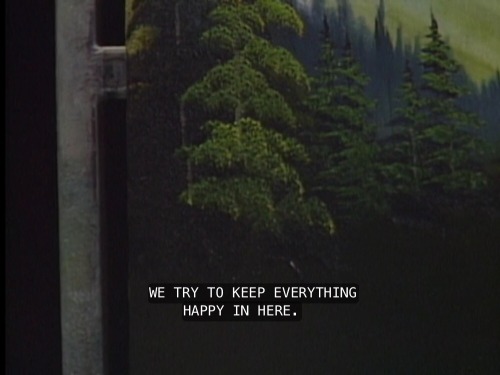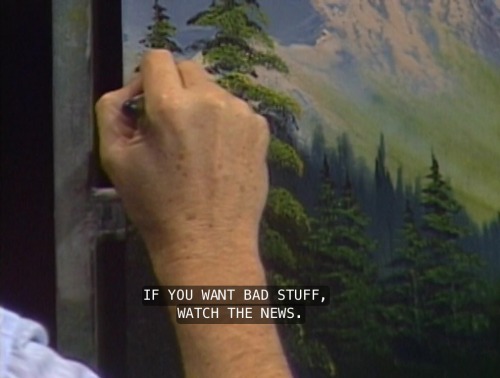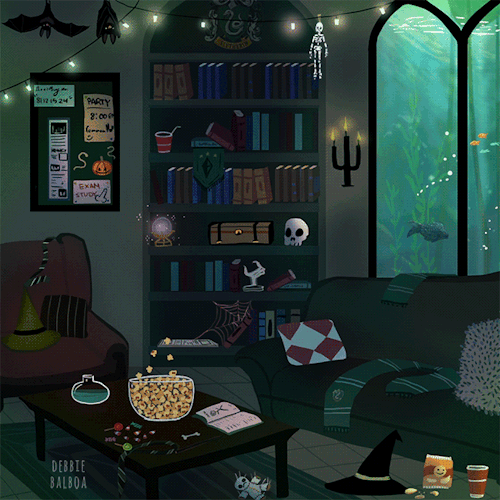Hi Everyone It’s My First Sharing And I’m So Excited Hope You Like It 😊

Hi everyone it’s my first sharing and i’m so excited hope you like it 😊
More Posts from Amandadiamond and Others

Orange is the happiest color. 🍊🌺🍁 -Frank Sinatra




Bob Ross cares about me
the no bullshit guide to getting your shit together: for the lazy student
Let’s be honest: time management and organization? They’re really hard. Sure, at first you might feel like you’ve gotten the hang of them, that you’re in control of your life. But how often have you fallen off the wagon? Procrastinated on one thing and the next moment, you’re behind in all your classes? I know that sometimes laziness feels like a part of who you are, but honestly, fuck that. Do you really want to give up your success for the disinterest of a moment?
If your answer is no (it better be no, or you really need to get your priorities straight), let’s get to it.
STEP ONE: BE HONEST WITH YOURSELF
“This class doesn’t even matter.” “I don’t care about my grades.” “I can finish this the day before.” Sound familiar? You might feel great now, but when you’re staring down at your report card later, it’ll feel like you just got punched.
This is a cliche, but the greatest obstacle to your success is yourself - especially the lies you tell yourself! Sit yourself down and be honest about what you need to improve on. Be as blunt as you can, but for god’s sake, don’t throw yourself a pity party! There’s no use agonizing over what you can’t change. Instead, set realistic, achievable goals, and make a game plan. Struggling with math? Go to extra help. Behind in all your classes? Stay in for a couple nights and actually work.
STEP TWO: STOP WITH THE FANCY SHIT
Now you know what your goals are, but maybe you want some inspiration, so you log on to tumblr and are instantly bombarded by all these beautiful, well lit shots of the most gorgeous bullet journals, planners, and notes. Impressive, right? Well, I’m gonna let you in on a little secret: they’re all useless! A simple phone planner works just as well, if not better, than a fancy agenda, because you’ll always have it on you, it’s not a hassle to carry around, and you don’t feel obligated to make it look pretty.
Riddle me this, where are you going to find all this extra motivation to keep prettying up your bullet journal? To write all your notes in perfect, colour coded printing? There aren’t many times in life where taking the easy was out will actually benefit you, so take advantage! Stop wasting your time; get a phone planner and write your notes in your natural goddamn handwriting.
STEP THREE: CLEAN YOUR ROOM
Yep, your entire room - not just your study space! This one can be put on the back burner for a bit if you’re on a really pressing deadline, but I wouldn’t recommend it. I’m notoriously messy, and if I don’t watch myself, I’d find myself in dirty-laundry-and-old-notes hell. A little bit of organized chaos is fine, I even encourage it! But try working when your desk is covered in mounds of paper and you have nowhere to put your laptop – it’s just not conducive to success.
Keeping your entire room clean is a way to stave off stress, frustration, and even embarrassment, because nobody wants to show potential roommates how much of a mess they are.
STEP FOUR: ACTUALLY WORK
Yeah, I know what you’re thinking: “actually work? Who does this girl think she is?” I’d probably think the same thing, except I’ve learned the valuable lesson of sucking it the hell up, and you will too. When you get home from work, grab a snack and work. When you have a free period, figure out what’s due and work. Stop reasoning yourself out of work: you’re not going to finish this later, and that will be on the test. There’s really not much to say about this one, because it’s the step that requires the most raw effort, and you’re really only going to find that within yourself. Tell yourself what’s at stake, and realize that, by setting the standard for your mediocrity now, you’re potentially trapping yourself in a cycle that will last for years.
STEP FIVE: CUT YOURSELF SOME SLACK
Maybe you’ve been on top of your shit for a day, a week, or even a month, and that’s really great. But then… you fail. You miss a deadline or you bomb a test. So what do you do now? Do you allow yourself to fall back into your old habits? Fuck no! Everyone fails, even that studyblr with those perfect bullet journal photos and a perpetually clean study space. I’m going to tell you something that’ll sound really strange: you should value your failures, especially if you worked hard to avoid them. What?! Be HAPPY about failing when I actually TRIED? Yeah, you heard me right. If you don’t know how to handle failure, then when you inevitably experience it, your reaction will be much worse.
Failing hurts, and boy, I know how embarrassing it can be. But learning how to deal with failure, and especially how to keep trying after it happens, is an invaluable lesson.
STEP SIX: TREAT. YO. SELF.
Disclaimer: I’m not suggesting you treat yourself after the most basic of tasks, because please. Treat yourself when you know you goddamn well deserve it. Remember that “all work and no play makes jack a dull boy.” If all you do is study and do your homework, then, pardon my french, your life sucks. If you don’t have friends, play a video game! Eat an entire jumbo chocolate bar! Indulge in whatever the fuck you want, you deserve it. I’m someone that has trouble prioritizing future benefits over immediate gratification, so by allowing myself little pleasures, I save myself from crashing and burning.
Hope these tips helped, but remember to take them with a grain of salt - you’re you and I’m me, and different things work for different people. Good luck!










Cary Elwes + being cute and dorky and adorable
99 legal sites to download literature
The Classics
Browse works by Mark Twain, Joseph Conrad and other famous authors here.
Classic Bookshelf: This site has put classic novels online, from Charles Dickens to Charlotte Bronte.
The Online Books Page: The University of Pennsylvania hosts this book search and database.
Project Gutenberg: This famous site has over 27,000 free books online.
Page by Page Books: Find books by Sir Arthur Conan Doyle and H.G. Wells, as well as speeches from George W. Bush on this site.
Classic Book Library: Genres here include historical fiction, history, science fiction, mystery, romance and children’s literature, but they’re all classics.
Classic Reader: Here you can read Shakespeare, young adult fiction and more.
Read Print: From George Orwell to Alexandre Dumas to George Eliot to Charles Darwin, this online library is stocked with the best classics.
Planet eBook: Download free classic literature titles here, from Dostoevsky to D.H. Lawrence to Joseph Conrad.
The Spectator Project: Montclair State University’s project features full-text, online versions of The Spectator and The Tatler.
Bibliomania: This site has more than 2,000 classic texts, plus study guides and reference books.
Online Library of Literature: Find full and unabridged texts of classic literature, including the Bronte sisters, Mark Twain and more.
Bartleby: Bartleby has much more than just the classics, but its collection of anthologies and other important novels made it famous.
Fiction.us: Fiction.us has a huge selection of novels, including works by Lewis Carroll, Willa Cather, Sherwood Anderson, Flaubert, George Eliot, F. Scott Fitzgerald and others.
Free Classic Literature: Find British authors like Shakespeare and Sir Arthur Conan Doyle, plus other authors like Jules Verne, Mark Twain, and more.
Textbooks
If you don’t absolutely need to pay for your textbooks, save yourself a few hundred dollars by reviewing these sites.
Textbook Revolution: Find biology, business, engineering, mathematics and world history textbooks here.
Wikibooks: From cookbooks to the computing department, find instructional and educational materials here.
KnowThis Free Online Textbooks: Get directed to stats textbooks and more.
Online Medical Textbooks: Find books about plastic surgery, anatomy and more here.
Online Science and Math Textbooks: Access biochemistry, chemistry, aeronautics, medical manuals and other textbooks here.
MIT Open Courseware Supplemental Resources: Find free videos, textbooks and more on the subjects of mechanical engineering, mathematics, chemistry and more.
Flat World Knowledge: This innovative site has created an open college textbooks platform that will launch in January 2009.
Free Business Textbooks: Find free books to go along with accounting, economics and other business classes.
Light and Matter: Here you can access open source physics textbooks.
eMedicine: This project from WebMD is continuously updated and has articles and references on surgery, pediatrics and more.
Continua a leggere
How I Got Straight A’s in My First Year of University
I was so proud of myself when I received firsts (that’s A’s for those not attending uni in the UK) on all of my assessments in my first year at university. Here are some tips for y’all to try at any point in university. They may be specific at times to my experience—my degree is in the social sciences and humanities, and I’m studying in the UK—but I did try to make them more generally applicable, and hopefully they should be helpful to someone out there.
Part One: Everyday Study Routine
Before the start of the academic year, try to get in a little bit of preparation. See if there are any syllabi or reading lists posted online. You don’t have to pour over them, of course, but do attempt to do something, and have a basic grasp on what will be covered in your classes.
Go to all your lectures and seminars. Unless you absolutely have to miss class because you are ill or have an important obligation to take care of, it’s really important to attend your lectures every day. (Note: if you are struggling with mental or chronic illness or a disability, don’t beat yourself up if you keep missing class. Please take care of yourself.) You may be tempted to just look at the PowerPoint presentation online, but it’s much more effective to be there in person. Often the lecturer may include information or extra explanations which are not included in the presentation. It will also allow you to process the information aurally as well as visually, and you will have the added benefit of taking notes too. You may also be able to ask questions.
Do all the pre-reading for lectures. I know it’s tempting to put it off, but try to work it into your daily routine (because you will have reading to do every day). Inevitably, there will be times where you slip up and don’t have time to finish. If this happens, make sure you catch up on it at some point, because it’s very important to solidifying the concepts you are learning about. Also, the more you read in general, the better you will become at reading (and also writing).
Take diligent notes (for both your lectures and pre-reading), and keep them organized. I prefer to handwrite in a notebook, as it helps me synthesize information rather than just typing it out verbatim—but it is totally up to you. If you do use a notebook, make a table of contents on the first page, where you write the date, topic, class, and page numbers of each set of notes you take. I think it’s a great idea to include your own thoughts and opinions in notes, or linking concepts you are learning to concepts you already know about.
If you have the time, make sure to be reading books/essays/articles and engaging with ideas outside of your regular syllabus. This is one of the most important techniques (in my experience, at least) when it comes to writing essays and answering exam questions. Evidence of wider reading around a topic is a great way to boost the credibility of your argument. It also does wonders to solidify and broaden your conceptualization of certain ideas you may have covered in your classes.
Where possible, try to contribute (as much as you feel comfortable) in seminars. If you are very quiet and reserved, that is totally okay too. I’m with you. But it has helped me tremendously in the past year to push myself to speak up more often in seminars. Talking in seminars allows you to clarify concepts and engage more deeply with the material being discussed (and it might impress your seminar tutor too, though this is secondary to the learning in my opinion).
If you have some nerdy-ass friends, talk with them about your ideas and what you’re both learning in your courses. I can’t tell you the number of essays I’ve written which actually have blossomed out of conversations I’ve had with friends, where they’ve exposed me to topics I’d never heard of before or broadened my view of a concept. Learning from each other in a casual and fun setting is amazing!
Part Two: Assessment Time
When you are given notice about big assignments coming up, such as essays or group projects, try to start working on them ASAP. Trust me, I know how hard it is. This is coming from someone who has dealt for years with chronic procrastination issues and nearly didn’t graduate from high school because of it. But you must start planning as soon as you possibly can, because the due date will come screaming up and before you know it, it’ll be the night before the deadline and you won’t have a clue what you’re writing about. Work it into your daily schedule if you have to. One great tip is to write down the deadline as being earlier (say, a week earlier) than what it actually is. This will prompt you to start earlier than you normally would have.
Do a shitload of reading, widely, from multiple sources. Read everything you can on the topic you are doing your assignment on. For a basic literature review, this means looking through at least 20+ sources. That doesn’t mean carefully perusing each one front to back; it means looking through all the relevant literature to find a few great sources which will really give you a coherent argument and a big picture of the topic at hand.
Keep your sources organized. I use Paperpile, which is a Chrome extension that allows you to save and organize academic sources. I make a folder for each assessment I am working on, and anything I find relevant to my topic, I save it to the folder. This will be a life saver for you when you actually go to plan your paper and also do the referencing.
Content is important, but perhaps even more important is your argument and structure. This mostly applies to essays, but you can apply it to other types of assessments too. Try not to structure your argument in terms of blocks of content—e.g. Paragraph 1 is about Topic A, Paragraph 2 is about Topic B—but rather in terms of how you are laying out your argument. Make sure each part of your essay flows into the next, so that you are, for example, setting up a kind of dialogue or narrative between the different sources you’re using. Also ensure that any point you are making clearly relates back to your main thesis.
If you’re a perfectionist like me: train yourself to remember that there is no such thing as perfect. Try to imagine what the perfect essay would be like. Can you imagine it? It’s probably pretty difficult, right? That’s because there is no such thing as a perfect assignment. Remind yourself of this, constantly. Tell yourself that you will be okay with just doing your very best. If you think about it logically: handing in something that is perhaps not your best ever, but handing it in on time and doing pretty well, is infinitely better than attempting to have a “perfect” essay but handing it in late and failing the assignment.
I hope this helped some of you! Best of luck and happy studying this year—go knock ‘em out! xo




Hogwarts Houses common rooms in Halloween season
an ultimate guide to crafting your daily schedule 👀✨





‘Ello, mate! It’s werelivingarts and I’m here with a simple guide to manage your time and prioritize your tasks with only 3 steps ~
Before planning anything, For me (you guys might have different approach), I find recognizing my energy level pattern really helpful because I can prioritize tasks and get the done in my most productive time rather than forcing myself to cram for homework after midnight. 🌚🌝
I start planning my day by dumping all of the tasks I remember down to to-do list using Bear, and then I would organize these tasks if they are daily, weekly or monthly task on Edison app – which also allows time blocking. After that, I would prioritize tasks daily on app Success. (This is not ad, this is just helpful apps that I use). 😎
Hope you find this helpful in some ways! Thank you for reading! ❤️💜💙
Things NOT To Do When Studying
I was going through some old papers from freshman year and I was thinking about what I was doing wrong when I didn’t achieve the grades I wanted, even though I got As in my classes. What things could I have done better to get a 100 instead of a 96? I don’t ask myself this so much as to be a perfectionist (even though I am one). I ask myself these questions because: 1) I must not have had a completely solid understanding of the material if I couldn’t get a 100 on it. 2) Maybe my less-than-stellar test-taking skills got in the way. 3) I’m a tutor, so I want to be sure I understand everything thoroughly enough to help others with the material.
I may add to this later, so you can always check out the original post here. As always, feel free to comment or message me if you want to add something to this list!
General:
Don’t simply read over your notes to study. It doesn’t work. You might pick up pieces here and there or even memorize certain things verbatim, but reading something 20 times is very inefficient. Your brain learns by making connections, so if you’re only straight reading the material you’re not making extra connections. You’re much better off going through your notes to make your own questions and quizzing yourself on them, marking down connections as you read (either in the margin or by literally connecting them in the text with a pen), or creating a study sheet (whether in text format or a mind map).
Don’t simply highlight, either. While there is a proper way to highlight, most people I see using a highlighter are doing it wrong. If you’re the person who highlights 90% of the paragraph, I’m talking about you. Okay, so highlighting is physically more active than glancing over your notes 20 times, but it’s about equally as effective if you’re highlighting everything. I recommend instead highlighting (or marking with eraseable pencil) things you want to go back to later. But, again, highlighting and reading alone is not useful. Go back to your highlighted parts to reread something that was hard to understand the first time, a topic you want to revisit to make a review sheet, etc. Whatever you use it for, make sure the purpose is to quickly find information later, not simply so you can read those things again. Try making a study sheet, in your own words, based off of your highlighting.
Don’t forget to write things down. And I don’t mean just in your planner when you have homework or papers due. This isn’t so much about getting absolutely everything down in terms of notes, either, I have a separate post regarding that. But in class you should always write down questions you have and the answer. If you don’t get a chance to ask during class, ask ASAP whether it’s directly to your teacher or asking a classmate. If it’s that important, do some research on it, too. Also, make sure you write down information on due dates or paper topics. You probably already do that, but I would recommend having a piece of paper with you every day where you can write anything important down like dates and to-dos to organize all in one shot. If you simply write down “paper due” in a block in your planner before rushing to the next you may not see that reminder until close to the due date. I like to take all of the information on the piece of paper (which also has my day planned out and a to-do list) right when I get up in the morning so I’m prepared for the day and don’t forget anything.
What I Did Wrong:
Don’t take it easy at the start of the semester. To be perfectly honest, I’ve pretty much always done that, but my freshman year of college it wasn’t a huge deal since I pretty much already took those classes. Sophomore year, however, everything was new, so memorization and understanding didn’t come quite as easily. The harder your classes are, the more essential this is, especially if you actually want to sleep during finals week. The best thing you can do is start doing work before the semester even starts if you have a syllabus handy, or even just looking through your books to see what’s ahead. While everyone else is doing fun things the night of that first day, make sure you get some work done first before you have your fun. This sets the tone for the rest of the semester and gets you into the habit of working. Don’t let yourself get behind! It’s easier to stay ahead than it is to struggle catching up.
Don’t leave your notes to rot after class. Meaning, do something with them right after class! … or at least ASAP. Mark them up, edit them, rework them, copy or type them (if your handwriting sucks like me), or, best of all, write a short summary. Take the several pages of notes you have and condense them into one or two paragraphs. Don’t worry about the details, just make sure you’re hitting on the key points. As a bonus, you can type up some questions based off of your notes to save for later studying (details are allowed here). Everything will be fresh, making this a much easier process than if you did it right before the test. At the end of the week, make a summary of your summaries and quiz yourself on the questions you made. You’ll probably want to use those questions again, so try to reword them or even combine them into bigger questions that cover many topics. That way you’re being active with the material and will actually understand what you’re answering as opposed to parroting.
Don’t make study sheets by copying off of something else. Yes, I made this mistake. I wasn’t copying initially, but rather, using a review book as a reference to make study sheets. However, the more I was pressed for time the less I started putting things into my own words. Now, this wasn’t a big deal in terms of legality, since I kept them to myself, but it didn’t turn out to be all that helpful in the end. If you want to make study sheets, you could either take concepts you’ve been learning and put them together in different ways or make a summary in your own words. I recommend both, but whatever you do, make sure you’re actually creating something new or else you’re not going to remember it. For example, in organic chemistry I took the reactions and grouped them in different ways (by subtstrate, reactants, products, etc.) as a reference while studying. The act of sorting and looking through the reactions in order to make the sheets helped me remember them, then I had the sheets to look at while doing practice to help me memorize them further.
Don’t save the bulk of lab work for after the lab and don’t wait to write your report. By this I’m referring to the post-lab report. Spend the extra time while prepping your pre-lab materials to start your report! You’re expected to know the theory behind your labs before you perform them, so writing the introduction to your report should not be a problem. If it is, then you’ll be glad you took the time to understand the lab before you tried actually doing it. By doing this you may also find that you have questions that can be answered by the professor before you get confused in the middle of a procedure. Also make sure you have data tables prepared (not just in your notebook, but in the report file to fill in after) and anything else you’ll need to take down data. Once the lab is finished do the report immediately. Everything you did will be fresh and you’ll be glad you finished it well ahead of the deadline. At this point you can show your lab to your professor and get any corrections fixed so you’re ashooin’ for an A!
Don’t try to write a paper in one shot. I understand if you feel like your papers flow better if you do it all in one shot, but at least make sure you plan it out thoroughly ahead of time before you actually write it all out. But even then, you will likely benefit from splitting your paper into chunks to tackle one day at a time. If you have a research paper that’s double-digit pages then you’ll be forced to do that anyway, but be sure you’re splitting up the work for small papers, as well. It may not seem like a big deal to do a short paper in one day, but if you end up having other assignments or tests due around the same time it might up your stress if you’re crunched for time trying to finish that “insignificant” paper while juggling a few other assignments as well as some test prep.
Advice Suggested By Others:
Don’t listen to distracting music while studying. To some degree, the types of music that are considered “distracting” vary when it comes to the subject you’re studying and personal preference. However, the general rule of thumb is that you avoid any sort of music with lyrics if you’re studying a subject that involves language. Art, math, and certain sciences are an exception if you’re working with pictures or numbers, since language usually doesn’t interfere with those things in the brain. But if you’re reading anything, even if it’s worded directions to a math or science problem, lyrics will probably be distracting. Some people suggest that listening to new music with lyrics is okay because you won’t be tempted to sing along with something you don’t know while others get distracted by hearing any type of language. Again, it’s truly up to you, but genres such as classical, jazz, and nature sounds are usually recommended. Heck, if you’re a musician and get distracted by any type of music, silence or brown noise may be the better option for you. (Suggested by aslongasitsfiction)
Don’t study in bed. Scientific studies have shown that doing anything in your bed that isn’t sleep or sex-related affects your ability to fall asleep in your bed. When your brain primarily associates your bed with sleep, it’s much easier to fall asleep. But having trouble sleeping in your bed isn’t the only part of the problem. While studying in your bed is really comfy, you’re also more likely to fall asleep if the association with sleep is strong enough. It’s generally recommended that you don’t even study in the same room as your bed, but as college students this may not be possible if you want to use your desk. So if you don’t want to make the trek out to a more secluded study space, at least try to make sure your desk doesn’t have your bed in view. Because let’s be honest, if you’re exhausted, simply seeing your bed might be enough to make you nod off. (Suggested by rare-footage and ane-mia)
Don’t go on tumblr. Okay, this may seem obvious, but sometimes a reminder is all you need to get off your computer! I suppose it’s better that you’re looking up information to help you study, but I think we both know what the better choice would be. (Suggested by oneofakindgizibe)
Don’t study in a place you can’t focus just because your friends are there. Us humans are social animals. We like being around other people. But this can cause you problems if you’re trying to study. Unless you’re in a productive study group, make sure you separate study time and social time. You’re probably more likely to gravitate towards fun, social things over studying, so make sure studying is a priority and you get it done before seeing your friends. If you have a roommate or two, then your dorm room is probably not the right place to study. Find a few of your focus hotspots and go there for your study time. (Suggested by fitspoforever)
Don’t forget the little things you know you’ll need. This includes but is not limited to things such as chargers, books, snacks, and water. You don’t want to be in-the-zone and all of the sudden realize you need to run back to your dorm room to get a book. And then 10 minutes later realize you’re hungry and need to run to the cafeteria. If you don’t already have certain things that are always in your bag, simply keep a list of things you generally need to bring with you, leave it as a reminder on your desk, and check it over before you hit the library. (Suggested by fitspoforever)
Don’t take naps while studying without setting an alarm. Or even better, avoid naps all together. If you’re like me, 15-minute naps usually turn into 2-hour events. But regardless, if you need to get some extra sleep, get the extra sleep. It’s better to take a nap when you know you need it as opposed to falling asleep on your desk unexpectedly when you have a paper you need to get done for the next day. 15-20 minutes the recommended time for a short nap, but if you need something more robust, try for 90 minutes or use sleepyti.me to figure out the right time to wake up. (Suggested by fitspoforever)
Don’t wear uncomfortable clothes. I personally find that “dressing for success” works really well for going to lectures and virtually everything else, but terribly if you’re hitting the library for a long study session. You’ll probably wanna look cute if you’re heading somewhere public, but just make sure you’re comfortable. Yoga pants are fine for the occasion! (Suggested by fitspoforever)

to annotate books that I borrow from the library, I cut up post-its into smaller strips for notes. what are your tips for annotating books without actually marking them? ⠀⠀⠀⠀⠀⠀ posted on Instagram - https://ift.tt/2umAE5b
-
 amandadiamond reblogged this · 6 years ago
amandadiamond reblogged this · 6 years ago -
 poweroffashionisunderrated-blog reblogged this · 6 years ago
poweroffashionisunderrated-blog reblogged this · 6 years ago -
 okayseconds-blog liked this · 6 years ago
okayseconds-blog liked this · 6 years ago -
 goodteastudies liked this · 6 years ago
goodteastudies liked this · 6 years ago -
 srz137 liked this · 6 years ago
srz137 liked this · 6 years ago -
 rosegoldbutt44 liked this · 6 years ago
rosegoldbutt44 liked this · 6 years ago -
 chapdolla-blog reblogged this · 7 years ago
chapdolla-blog reblogged this · 7 years ago -
 chapdolla-blog liked this · 7 years ago
chapdolla-blog liked this · 7 years ago -
 enricoblog-blog1 liked this · 7 years ago
enricoblog-blog1 liked this · 7 years ago -
 amandadiamond reblogged this · 7 years ago
amandadiamond reblogged this · 7 years ago
95 posts